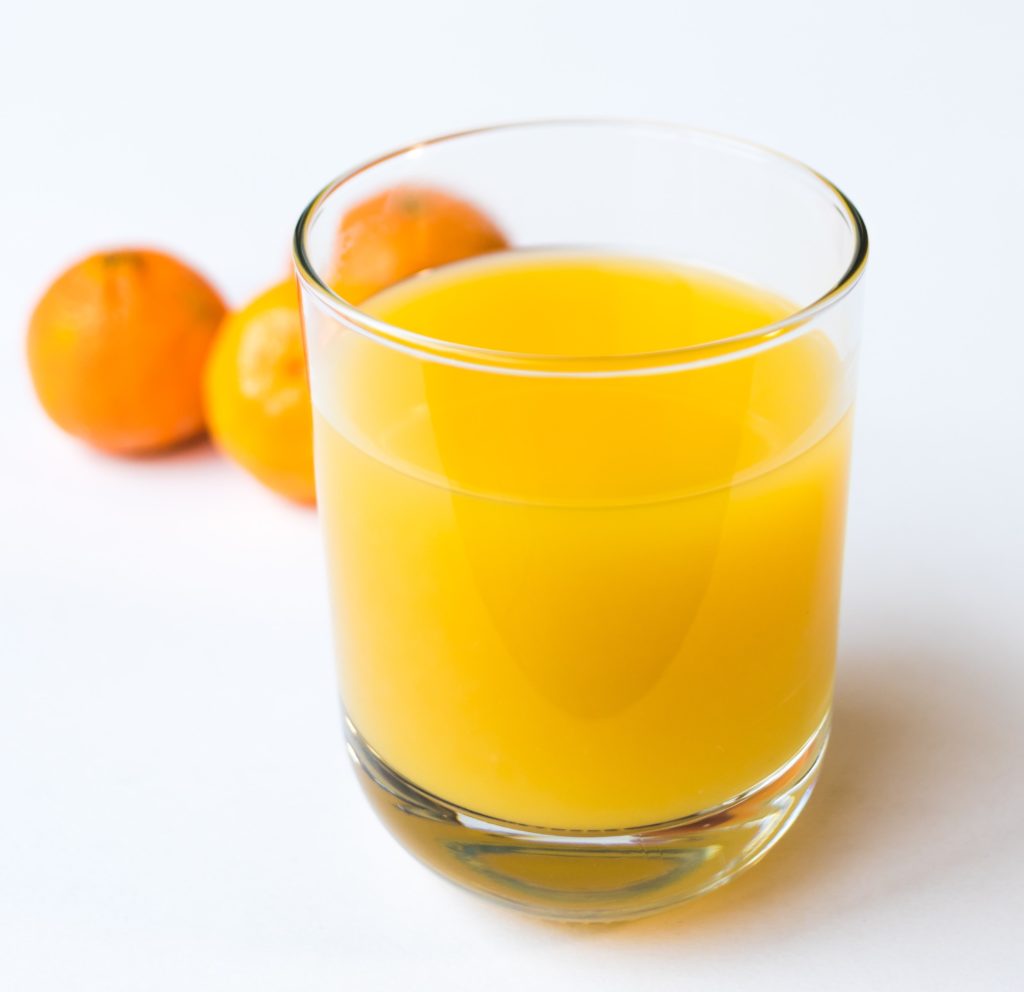
If you think drinking copious amounts of orange juice bought from the shop is healthy, think again. Freshly squeezed orange juice made yourself however, is good for you as it contains plenty of nutrients and antioxidants. Shop-bought orange juice is artificially produced and laden with chemicals – it should be avoided at all costs.
Big juice manufacturers market their orange juice as a healthy and nutritious drink to include in your diet. So, it’s not surprising that juice sales continue to rise as consumers still perceive shop-bought orange juice to be a healthier alternative to soft drinks.It looks healthy, it sounds healthy, but is orange juice good for you?
If you squeeze the fruit yourself, yes. Fresh orange juice contains valuable nutrients, including vitamins, minerals and antioxidants.Industrially produced fruit juice (the type you buy in the shops) is a different matter. Manufacturers claim their juice is 100% pure and natural, but this isn’t the case.Discover the shocking truth about how orange juice is made and the chemicals involved in the manufacturing process. You won’t ever buy orange juice again!
Types of orange juice below, as fruit juice is generally categorised as:
- Freshly squeezed – juice that is pressed from the whole fruit
- From concentrate – this is the thick, sticky syrup which is left after the juice is extracted from the fruit and the water is evaporated
- Not from concentrate – juice is extracted from fruit, pasteurised, de-aerated (to prevent oxidation) and stored in large aseptic tanks.
- Nectars – syrupy juice with added sugar/ sweeteners, colours and preservatives. It contains as little as 5% juice and is bulked out with water.
How is orange juice made?
Industrially produced orange juice is made by Oranges are squeezed to extract the juice. The Juice is stored in aseptic vats (for up to one year) where it’s pasteurised using heat to eliminate pathogens and extend shelf-life. This process decreases nutrient levels including its vitamin C and carotenoids (a type of antioxidant) which are essential for immune health. Oxygen is removed from the juice, stripping it of natural flavour and aroma. Then Flavour packs are added to the juice to reintroduce flavour and aroma once the juice is ready for packaging.
Flavour packs are added to orange juice to reintroduce a standardised flavour profile once it has been stripped of oxygen. They are made with the leftover pulp and skin of the oranges. Plus, a cocktail of harmful chemicals to ensure the juice tastes the same all year round . Companies don’t have to list flavour packs on the label, they simply call them “natural flavours“.
What are flavour packs?
Juice companies hire flavour and fragrance companies to engineer flavour packs, the same ones that formulate perfumes for Dior and Calvin Klein. Making citrus flavours is a complex procedure and requires lots of chemical processing, leaving many chemicals remaining in the finished product. Getting the smell and taste just right involves combining a variety of different flavours and compounds .The exact formula and chemical composition of flavour packs is a mystery, companies keep their “secret formula” well-hidden. This wall of secrecy has concerned the FDA since the 1960’s.
Chemicals in flavour packs
• Ethyl butyrate is the main chemical found in orange juice. It’s naturally found in citrus foods but manufacturers add more synthetic ethyl butyrate to flavour packs as it imparts the fragrance associated with a freshly squeezed orange. Synthetic ethyl butyrate is known to cause to skin and respiratory irritation.
• Decanols:these are the same substances used to manufacture plasticisers, lubricants, surfactants and solvents. Decanols have been linked to acne, breast pain/ enlarged breasts and abnormal bladder contractions.
• Aldehydes: these are chemical compounds used in tanning/ embalming products, fungicides and insecticides. Some aldehydes are genotoxic and carcinogenic.
• Alcohol: in order to create the essence in orange oil, a large volume of alcohol is used due the volatile nature of the oils.
• High levels of pesticide residue are found in the orange oil sourced from countries where pesticide regulation is poorly regulated such as Indonesia, Brazil and Israel.

Should you drink orange juice?
- Drinking freshly squeezed orange juice (made yourself) is fine if you don’t have candida. Fruit juice is high in natural sugars which feeds candida.
- Eating the whole fruit is a better option as it contains fibre which slows down fructose (sugar) absorption into your blood stream.
- Avoid shop-bought juice as it’s been artificially manufactured using an array of toxic chemicals.
Facts from this article is from CNM’s website, 2020.

